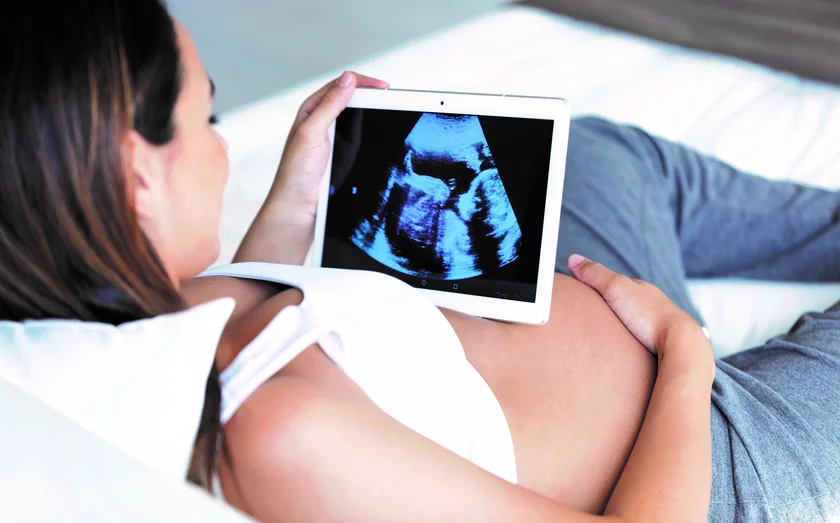Discovering a pregnancy can bring a lot of joy and not a little trepidation to moms-to-be. If you live abroad it can also bring a lot of questions about how the prenatal experience works in a healthcare system that is different from your home country.
The good news is that the Czech Republic has made major steps forward in terms of prenatal care. What's most important is to find a physician who puts you at ease and makes time to answer all of your questions. We spoke to Dr. Lukrécia Tatárová, a gynecologist at Concierge Medicine in Prague who told us how pregnancy care works in Czechia and offered advice on how to make the next nine months as stress-free as they can be.
"During your pregnancy, you should generally expect to see your healthcare professional once per month until week 36, weekly from week 36 to birth," says Dr. Tatárová.
You will feel a range of emotions while pregnant, you can feel happiness but be anxious as well, so don’t stress yourself. Try to look at the positive things. Enjoy your pregnancy because it’s a unique phase in your life.
During every prenatal visit, you should have your urine tested and your weight and blood pressure monitored until you deliver. Throughout your pregnancy, you will undergo a series of screenings to help determine any complications and prenatal genetic screening tests. Here's what to expect, week by week, at each visit.
6-8 weeks
Make your first prenatal appointment when you suspect you're pregnant. It's important to see a gynecologist and to have an ultrasound examination to confirm the pregnancy. Once pregnancy is confirmed, the doctor will take an overview of your medical history, calculate your due date and provide information about the next steps.
- First-trimester blood tests At your first appointment the doctor will check your blood type, and Rh factor, measure your hemoglobin, and detect exposure to any infections, like syphilis, hepatitis B, and HIV.
- Pregnancy booklet You will receive a pregnancy booklet to track your appointments and record important prenatal milestones.
11-13 weeks
- First-trimester screening exams determine whether the fetus is at risk for a chromosomal abnormality (such as Down syndrome) or birth defects via blood tests and ultrasound.
- Non-invasive prenatal testing (NIPT) is an alternative to maternal serum screening. NIPT is a maternal blood test that looks at the baby’s genetic DNA from the mother’s bloodstream and determines the risk of conditions such as Down syndrome and other chromosome abnormalities from 10 weeks of pregnancy.
14 weeks
- Register with a maternity hospital If you would like to give birth in one of the Prague maternity hospitals, you should check to see if pre-registration is required. Hospitals recommend doing registration for delivery at 14+0 weeks of pregnancy.
- Online or in person? Depending on the maternity hospital, you can register in person or online. However, note that this step can be difficult for non-Czech speakers due to the language barrier.
TIP: Concierge Medicine can help with the selection of maternity hospitals and with registration as well. Its Maternity Membership ensures care in its private clinic as well as cooperation with top doctors in the best hospitals during delivery.
20-22 weeks
- Second-trimester ultrasounds examine the fetal anatomy (baby's bones, heart, brain, spinal cord, face, kidneys, and abdomen) and confirm normal development.
- The gender reveal can happen at this stage (as long as the fetus is "cooperating" and in the right position). If you want your baby's gender to be a surprise, make sure to tell the doctor at the start of this examination!
24-28 weeks
- Glucose screening test To determine whether you may have gestational diabetes, a type of diabetes that some women develop during pregnancy, your doctor will do this test to avoid complications for both you and your baby during pregnancy and after delivery as early detection and effective management can significantly reduce the associated risks.
30-32 WEEKS
- Third-trimester ultrasounds These ultrasounds examine the growth of the baby, the level of amniotic fluid, the position of the placenta, and the position of the fetus.
35-37 WEEKS
- Group B strep test Group B streptococcus (GBS) screening during pregnancy involves a vaginal swab to check for GBS presence. While being a carrier of GBS is generally harmless for the mother, it can potentially cause infection in newborns. Fortunately, early identification and antibiotic treatment significantly decrease the risk of illness in the baby.
36-37 WEEKS
- Check-in at the maternity hospital Take your pregnancy card and all of your test results with you.
- Register with pediatrician Do not forget, before childbirth, choose and talk to your pediatrician, so that you may register your child with them after birth.
ABOUT THE EXPERT Lukrecia Tatárová MD, graduated from the Faculty of Medicine of Charles University, Czech Republic. Board examination in Obstetrics and Gynecology. Master of Business Administration in Healthcare Management. She is a board-certified gynecologist with more than 20 years of experience and has worked in both private and public hospitals and premium private medical clinics.
This article was written in association with Concierge Medicine. Read more about our partner content policies here.












 Reading time: 4 minutes
Reading time: 4 minutes 























